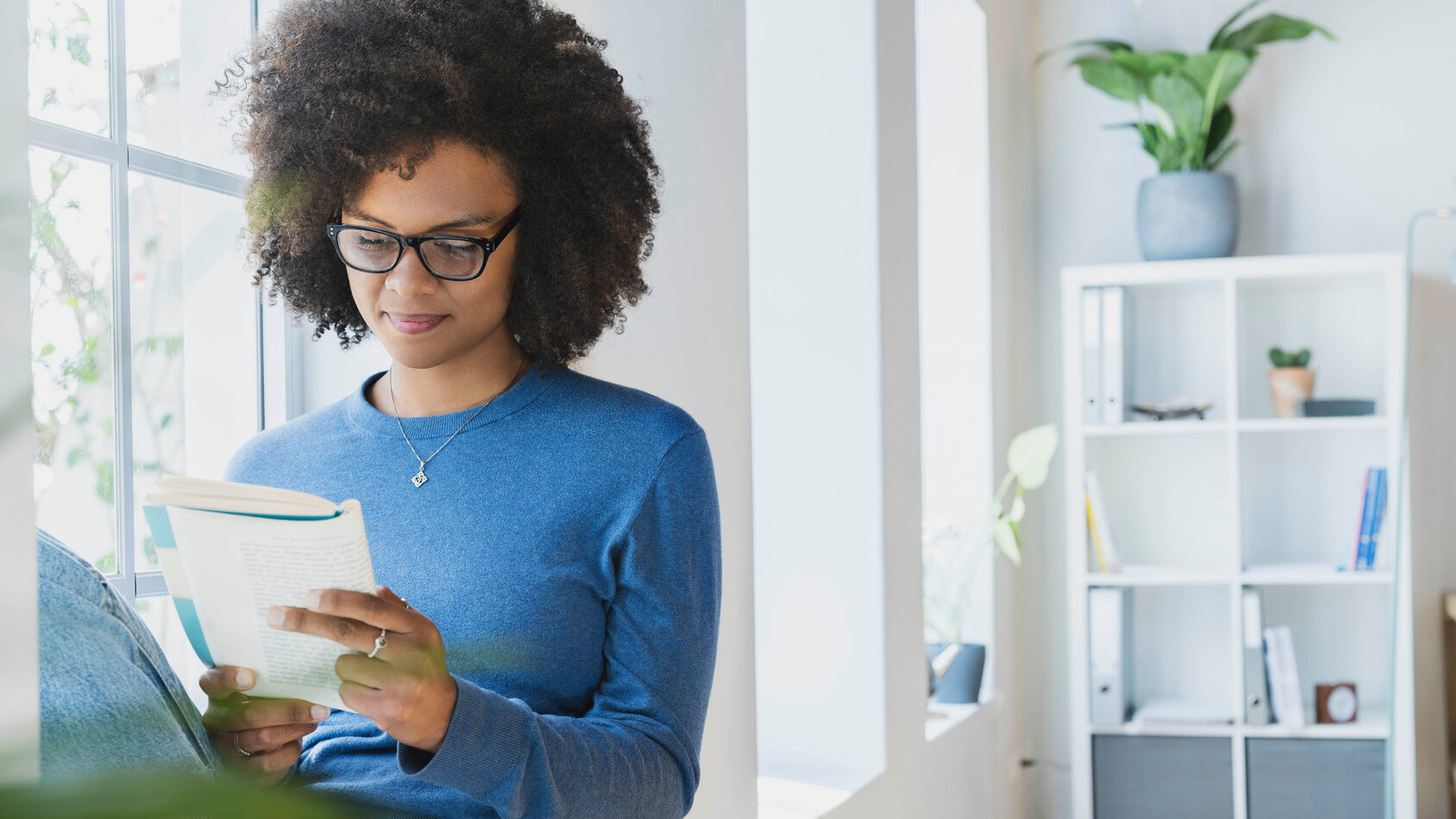As people’s eyesight begins to strain, they may turn towards reading glasses or “readers” for help with their vision. Mass Eye and Ear Optometrist Isabel Deakins, OD, breaks down the do’s and don’ts when it comes to choosing the right readers.

As people age, it is common to develop presbyopia, the progressive loss of near-focusing ability in their vision. When this occurs, many people turn to reading glasses to make up for their new blurry vision.
Optometrist Isabel Deakins, OD explains that there is no harm in using readers for tasks like reading, using the computer or looking at a menu. But, there are things to look out for to make sure the right magnification is used for the right activity.
What are readers used for?
Reading glasses are for people who have noticed that slowly, over time, they are having blurriness and eye strain when reading up close. This is due to presbyopia, which is a natural, age-related process where the focusing ability of the eyes weakens. The focusing system can be thought of as a muscle. When we look up close, we are dialing in “focusing power.” When we are young, our eyes can maintain focusing power for a long time, but as we get older, we cannot maintain that same power. Therefore, readers place the focusing burden onto the glasses rather than onto our eyes.
What should people know when trying to choose the right pair of readers from the store?
Readers come in different powers that work for different “working distances.” Optometrists define the distance between your eyes and the material that you are trying to see as your “working distance.” The closer the working distance, the greater focusing power is needed. Therefore, you will need a stronger (higher-powered, or higher number) pair of reading glasses if you are working, say, 6 inches away from your face, for example, on a highly detailed puzzle or needlepoint versus working 30 inches away, for example, on a computer monitor.
Choosing the right pair of reading glasses comes down to knowing how far away your desired working distance is. Often, results are best achieved by trying out a few different powered readers to determine the best number.
Are there negative effects to using readers?
Readers cannot make your vision worse; however, something that I caution people about when they are wearing reading glasses for the first time is that they are just for reading – glasses are not as advanced as our eyes, so they cannot change their focusing power. If you wear reading glasses but look off into the distance, your vision will be very blurry, which doesn’t change your eyes at all, it just causes temporary blurred vision. In a similar vein, different working distances require different powered reading glasses: Your computer glasses may not be strong enough for reading a book close to your face, and your book glasses may cause blurry vision at the computer.
Just like using a microscope helps us see tiny objects or binoculars help us see faraway objects, reading glasses only assist while you are using them.
At what point should people go to their optometrist instead of choosing readers?
An optometrist can help you to determine the correct power readers you need for your daily activities. Additionally, if you already wear a glasses prescription, the optometrist can inform you about how presbyopia may affect your near vision and give you tailored options.
When should people look into prescription glasses opposed to purchasing over-the-counter reading glasses?
If you need a prescription pair of glasses for distance, you can get your reading prescription built into that same pair of glasses by an optometrist. Also, if you want your glasses to correct for computer and reading all in one pair, an optometrist can prescribe multifocal glasses for you.
Are there any advancements coming out for reading glasses?
There are a few exciting developments for those living with presbyopia. Talk to your optometrist to find out if you are a candidate for multifocal contact lenses and/or eye drops for presbyopia.
If you plan to read outside in the sun this spring or summer, don’t forget about sun protection. We encourage people to look into sunglass readers to protect their eyes. If you require readers while applying makeup, search “makeup readers” online to find monocular readers that allow the user to see up close in one eye while applying makeup with the other.





Good article. I have old reading glasses I never used, but I read on Kindle and am having blurriness when reading. Does Medicare Plus typically pay for the check up and update? Shall I call my insurer?
Thank you. Bob
Thanks for also talking about the possible limitations of reading glasses. I’d like to find a good optometrist soon because I’m thinking about finding a good way to make it easier to fix my eyesight. My vision has been getting blurry as of late and that will only get worse if I don’t do anything about it.